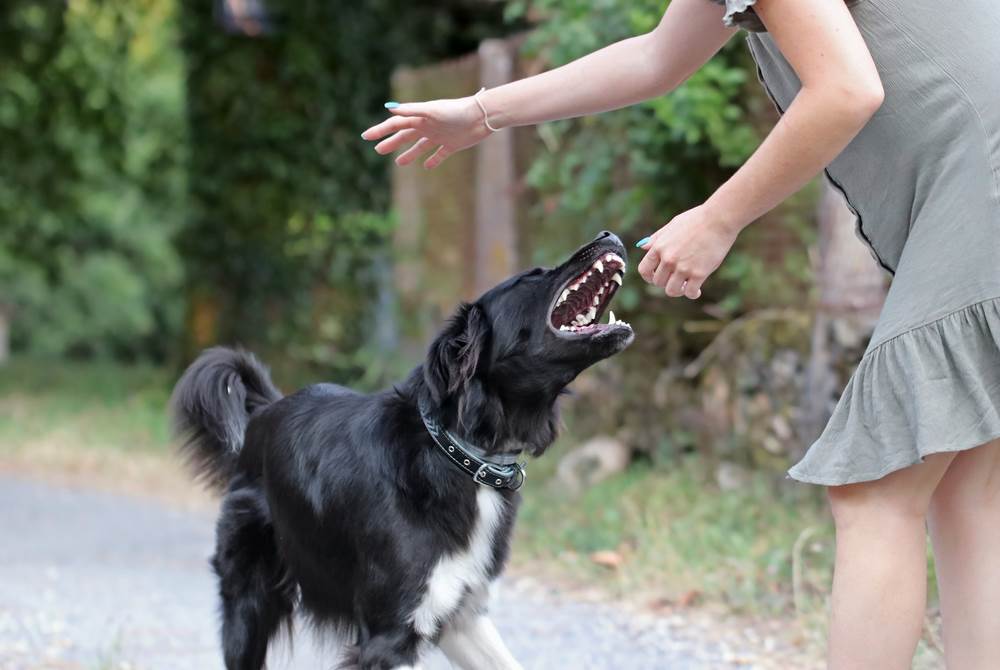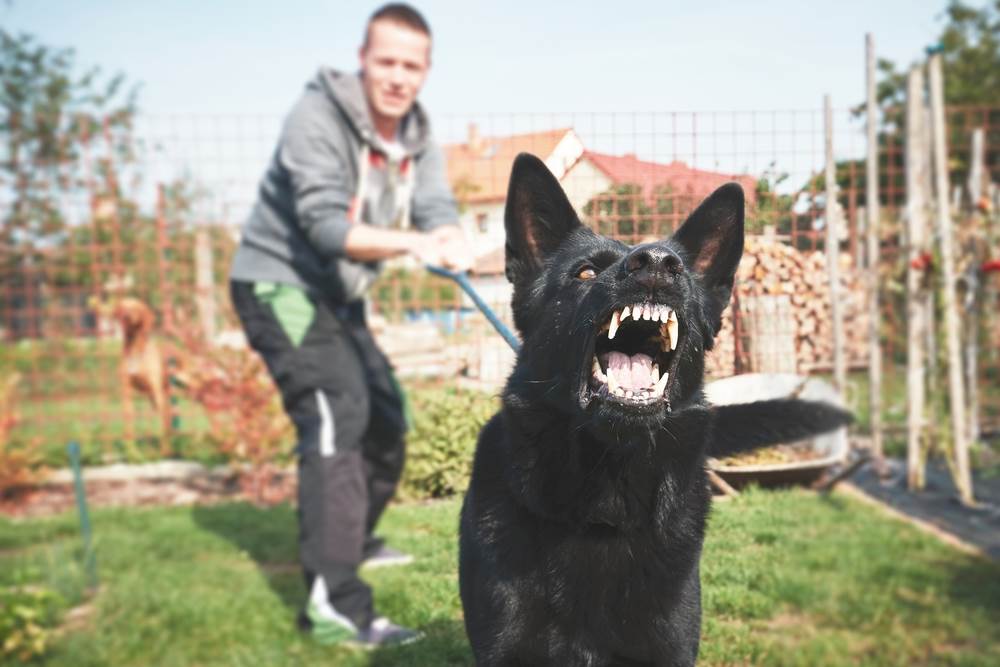There is no specific limit to how much money a plaintiff can seek by way of a dog bite lawsuit. Victims can sue for the full amount of their legal damages. Typically, dog bite cases are worth around $50,000.
If the injuries were severe, the victim’s legal damages are often higher and he or she can sue for more. The state’s dog bite laws and shared fault rules can decrease the victim’s recovery.
How much can victims sue for in a dog bite case?
Victims who have been bitten by a dog can sue for financial compensation that covers their legal damages. This goes beyond just paying for the victim’s medical care. In some cases, the dog owner’s insurance company will cover the verdict or settlement. Recovering the full amount often takes the legal advice of a personal injury lawyer.
After getting bitten by a dog, victims sustain legal damages. These are all of the ways that they have suffered from the dog attack, whether physical, mental, emotional, or financial.
A victim’s legal damages include his or her:
- medical bills,
- lost wages,
- lost earning capacity, if the injury is disabling enough to cause a professional setback,
- pain and suffering,
- emotional distress,
- loss of consortium for the victim’s family and loved ones, and
- property damage.
Victims deserve financial compensation for all of these legal damages. This is true, even when the dog attack only happened because of a mistake by the dog owner. Between an innocent victim and a negligent defendant, the negligent defendant is responsible for the accident and the injuries it produced.
The full amount of that compensation varies from case to case.
- If the injuries were minor, victims may only stand to recover a few hundred dollars.
- If there were serious injuries, the victim may sue for hundreds of thousands of dollars.
However, in 2019, the average cost of a settlement for a dog bite case was between $35,000 and $50,000, depending on the state.1 Those amounts have been increasing, though. In 2019, the average settlement was $44,760. In 2020, it increased to $50,425.2
What about punitive damages?
Legal damages can also include punitive damages. These damages are meant to punish the dog owner, even though they would overcompensate the victim. However, punitive damages are rarely awarded in dog bite cases. The dog owner would have had to behave especially poorly for punitive damages to be awarded.
A big factor in whether the victim will actually recover any of this compensation will depend on whether the dog owner has insurance coverage. Both homeowners’ insurance and renters’ insurance provide liability coverage for dog bites. However, not all dog owners have these types of insurance coverage.

If a dog owner does not have insurance coverage, any verdict or settlement will come from the owner’s personal assets.
Does insurance cover dog bites?
Even those who do have a renter’s or homeowner’s insurance policy may decide to opt out of this coverage to save money on premium payments. If the dog owner does not have insurance coverage, any verdict or settlement will come from the owner’s personal assets. This can make it unlikely that the victim will recover what they deserve.
The best way for dog bite victims to recover compensation for all of their legal damages is to establish an attorney-client relationship with a personal injury attorney from a reputable law firm.
If the dog owner is insured, an insurance adjuster will approach the victim soon after the attack and make an initial settlement offer. This offer is designed to seem enticing while drastically undercompensating the victim.
A dog bite lawyer will have a good idea of whether it is adequate. If no fair settlement offer is made, a dog bite attorney can help the victim file a personal injury lawsuit before the statute of limitations has expired.
If the dog owner is not insured, a lawyer can help find other parties responsible for the dog attack while suing the dog owner to recover whatever compensation is available.
What are some common dog bite injuries?
In determining how much a dog bite victim can sue for, a big factor will be the extent of the victim’s injuries. Some common dog bite injuries include:
- lacerations, some of which can cause life-threatening blood loss,
- nerve damage,
- infections,
- concussions or other traumatic brain injuries,
- disfigurement and scarring, and
- dismemberment.
Many of these require immediate medical attention in the emergency room. Some require extensive medical treatment, including pain management and physical therapy. In some cases, they lead to the victim suffering a permanent disability, which can come with lots of medical expenses that health insurance might not cover.
Not all injuries are physical, though. Some non-physical injuries that dog bite victims frequently suffer include:
- chronic pain,
- a fear of dogs, and
- posttraumatic stress disorder (PTSD).
How can my state’s dog bite law impact a case?
A state’s dog bite law may or may not impose strict liability on dog owners for their pet’s attack. If it does not impose strict liability, the victim will have to show that the dog owner was negligent. This additional element of a case can make it more difficult to prove. This can alter a verdict or settlement amount.
Generally, there are 2 different types of dog bite laws:
- the “one bite rule,” and
- strict liability laws.
Some states use the one-bite rule. There, dog owners will only be liable for a dog bite if the victim can show that the owner knew or should have known of the dog’s dangerous tendencies.3 It is called the one bite rule because a prior bite is strong evidence that the owner was aware of the danger. However, other evidence, such as an animal control officer’s testimony or records, may suffice, as well.
Most states, however, use strict liability rules for dog bites. In these states, the dog owner is held liable for any injuries caused by their pet, even if the owner did nothing wrong.
However, trespassers may not be able to use strict liability laws. They often have to prove that the owner was negligent in some way.
It is easier to succeed in a dog bite case in states that use a strict liability law. This can change the verdict or settlement that a victim can expect.

States that follow pure comparative negligence, like California, reduce the plaintiff’s recovery by his or her percentage of fault.
How can shared fault rules impact my dog bite settlement?
A state’s shared fault laws will also influence a dog bite settlement. It may even make it difficult for victims to recover any compensation for their injuries.
Shared fault laws are used to resolve cases where the victim was partially to blame for his or her injuries. They are common in car accidents where both drivers were responsible for the crash. There are 2 types of shared fault rules:
Both of these rules require a jury at a personal injury trial to assign a percentage of fault for the accident to each party.
A couple of states, including Virginia,4 still use contributory negligence. In these states, victims who contributed at all to their injuries are barred from recovering any compensation for them.
Most states use comparative negligence rules. There are 2 types of comparative negligence:
- pure comparative negligence, and
- modified comparative negligence.
States that follow pure comparative negligence, like California,5 reduce the plaintiff’s recovery by his or her percentage of fault.
In states that use modified comparative negligence, like Ohio,6 the plaintiff’s recovery is also reduced by his or her share of fault. However, if the plaintiff was more than half at-fault, he or she will be barred from recovering anything.
Which rule will apply to a given case can change how much the victim will recover. If the victim was partially to blame for the dog bite, such as if he or she was annoying or antagonizing the animal, shared fault rules can reduce the payout of a settlement or verdict.
For example: Mark is trespassing and throwing sticks at a dog when he is attacked and bitten. The jury in his personal injury case finds that he has suffered $100,000 in damages, but also that he was 55 percent at fault. He would only be able to recover compensation in a state that uses pure comparative negligence. Even then, he would only be awarded $45,000 in damages.
What is the statute of limitations for dog bite claims?
Different states have different statutes of limitations for dog bites. These statutes set a time period for the victim to file a dog bite lawsuit against the owner of the dog. Generally, they are somewhere between 1 and 3 years.
If the victim files the personal injury claim after the statute of limitations has expired, his or her case is likely to be dismissed as time-barred.
For more discussion, see our article on How long does it take for a dog bite settlement?
What is the law in California?
California’s dog bite statute applies strict liability to dog owners for injuries caused by their dogs.7 Victims also benefit from California’s pure comparative negligence law.8 The statute of limitations for filing a claim in California is 2 years.9
Legal References:
- Insurance Information Institute – “Dog Bite Liability Claims By State – Interactive Map.”
- Insurance Information Institute – “Spotlight on Dog Bite Liability.”
- See, for example, Borns v. Voss, 70 P.3d 262 (Wyo. 2003).
- See, for example, Coutlakis v. CSX Transportation, Inc., 796 S.E.2d 556 (2017).
- Li v. Yellow Cab Co., 13 Cal.3d 804 (1975).
- Ohio Revised Code 2315.33.
- California Civil Code 3342.
- Li v. Yellow Cab Co., 13 Cal.3d 804 (1975).
- California Code of Civil Procedure 335.1.

